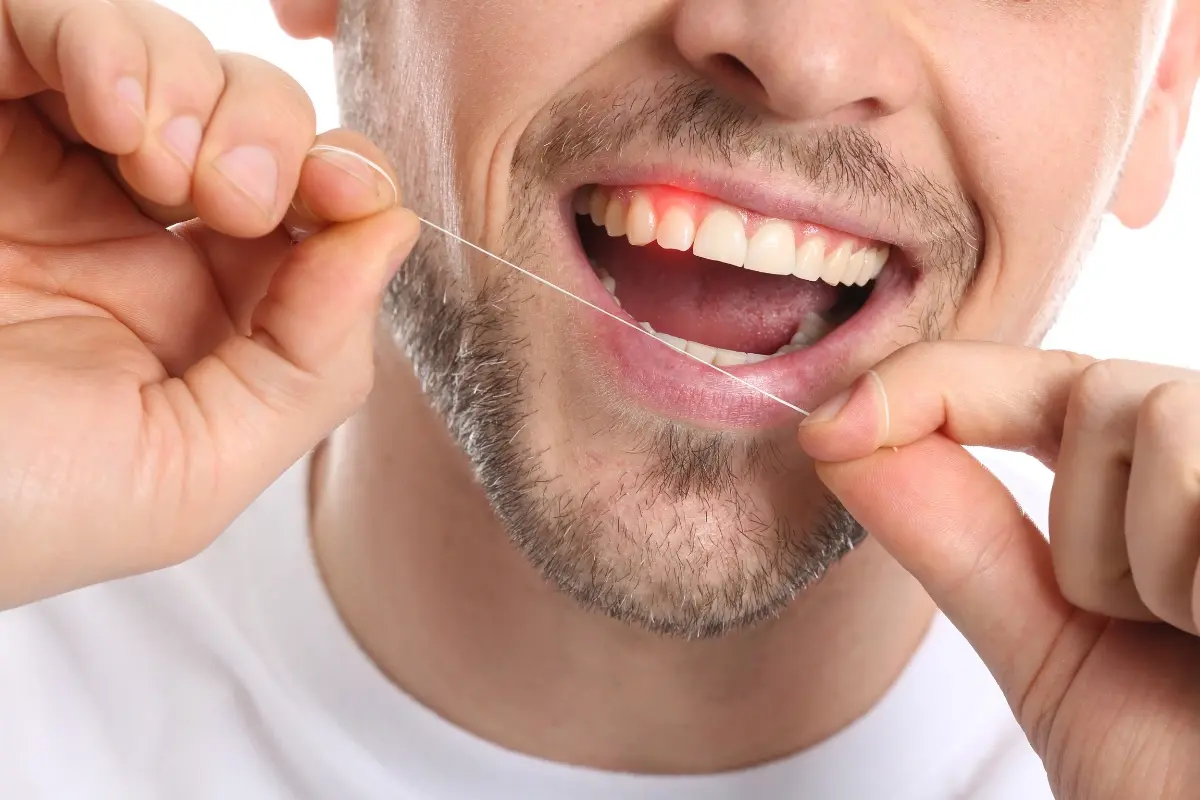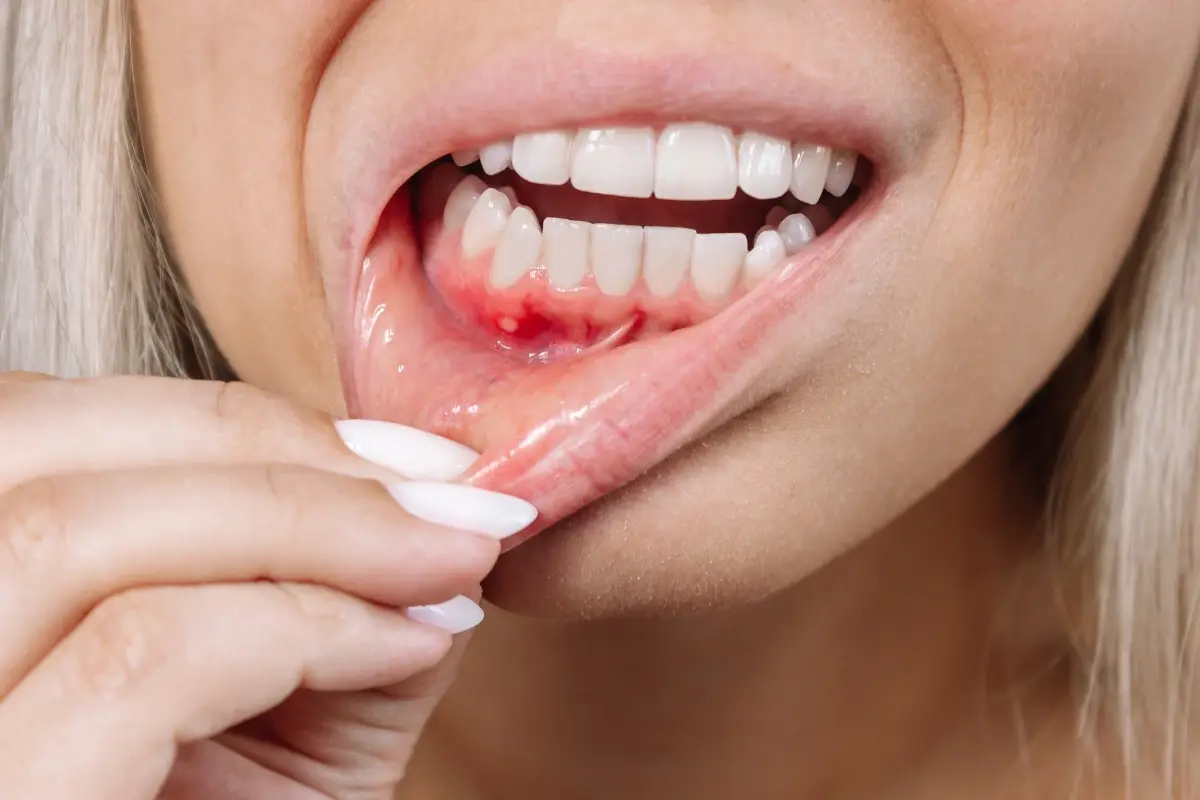
Understand why flossing may cause gum bleeding, what it reveals about your gum health, and how to fix it gently.
If you've noticed gums bleed when flossing, you're not alone. This is a common experience for many individuals occasionally. However, while it's common, it’s not something you should ignore. Bleeding gums are often a sign that your gums are irritated or inflamed, and may indicate underlying health issues.
When you floss, you’re cleaning between your teeth and gums, which are delicate. Swollen, bleeding gums often result from plaque and tartar buildup. This can be alarming, but the good news is, it’s treatable with a consistent oral hygiene routine.
At Rise Dentistry in Magnolia, TX, we understand how concerning bleeding with flossing can be. With good dental hygiene, your gums can heal and become healthy again. If you’re experiencing this issue, it’s important to take action and make sure your gums and mouth are well taken care of.
Bleeding gums during flossing is most frequently caused by gingivitis. It happens when plaque builds up along the gum line, irritating the gum tissue. This irritation causes the gums to swell and bleed, especially during flossing.
Plaque is a sticky film of bacteria that forms naturally on your teeth. When it isn’t removed through regular brushing and flossing, it accumulates along the gum line, leading to inflammation. Swollen gums are more prone to bleeding, which is why you may notice bloody gums after flossing.
If gingivitis goes untreated, it can lead to more severe gum disease. One of the risks is gum recession, where the gums pull away from the teeth, exposing the roots. This can lead to tooth sensitivity and increase the risk of tooth loss.

A sticky bacterial film called plaque naturally develops on teeth every day. If not removed, it builds up along the gum line and irritates the gums, causing gum inflammation. This irritation often causes gums to bleed during flossing as they become inflamed and sensitive.
If plaque isn’t removed, it turns into tartar, which can only be cleared by a dental hygienist during a professional cleaning. Daily brushing and flossing combined with regular dental checkups work together to minimize plaque and maintain healthy gums.

If you’re experiencing flossing bleeding gums, it could be due to incorrect flossing technique. Using too much pressure or snapping the floss can irritate your gums and cause them to bleed.
To avoid this, use gentle pressure and a light up-and-down motion when flossing. Slide the floss slowly between your teeth, following the natural curve of each tooth.
Make sure you don’t push the floss too deep into the gums. With the right technique, you can avoid blood on floss and keep your gums healthy and free from irritation.

Certain health conditions, like diabetes, pregnancy, or stress, can make your gums more vulnerable to gum disease. These conditions can increase your risk of gums bleeding from flossing due to weakened immune response and poor circulation.
Hormonal changes, especially during pregnancy or puberty, can make your gums more sensitive. This increased sensitivity can cause your gums to react and bleed easily when you floss.
Tobacco use significantly impacts the condition of your gum tissue. It weakens your immune system and can lead to gum recession, making your gums more likely to bleed during flossing. Quitting smoking can help improve your gum health and prevent further damage.

Consistent brushing and proper flossing technique help prevent gum bleeding during oral care. These habits remove plaque and bacteria from your gum line, keeping your gums healthy and strong. Be consistent with your oral hygiene routine, and your gums will thank you.
Persistent gum bleeding may indicate developing periodontal disease. In this case, professional treatments like cleanings or using specialized toothpaste can help. A dental hygienist can remove plaque and tartar that cause irritation, preventing further damage.
At Rise Dentistry, we offer professional Bleeding Gums Treatment and guidance to ensure your gums stay healthy. Early treatment of gum disease is crucial. If left untreated, it can lead to serious issues like gum recession or even tooth loss. Don’t wait—take action now to protect your oral health. Regular checkups and cleanings will help you stay ahead of potential problems.

If you’re experiencing bleeding gums, it’s important to see a dentist for bleeding gums. Ignoring the issue can lead to gum recession and more serious oral health problems. Early intervention can prevent these complications and keep your gums healthy.
Untreated bleeding gums can worsen, eventually leading to gum disease. This can affect your teeth and overall health, so addressing it early is key to avoiding further issues.
As preventive care specialists, dental hygienists protect your gums through expert cleanings and education. While home care maintains oral health, only professional cleanings can remove accumulated tartar buildup. They also help you maintain proper brushing and flossing techniques, which are essential for long-term oral health. When facing acute dental problems, timely treatment from Emergency Dentistry helps maintain long-term oral wellness.

It’s not normal for gums to bleed regularly. Some temporary bleeding may occur when starting to floss, but should diminish with regular practice over about a week.
To stop bleeding, floss gently and regularly. Proper technique and consistent brushing can help reduce gum irritation and bleeding.
Gums bleeding from flossing is usually caused by plaque buildup or gingivitis. Inflammation makes the gums sensitive and prone to bleeding.
Gingivitis and other forms of gum disease commonly present with bleeding gums.If left untreated, it can progress to more severe conditions.
Yes, it’s important to continue flossing, but do so gently. Ongoing bleeding warrants professional assessment by your dentist.

Gums bleeding from flossing is commonly caused by plaque buildup, gingivitis, or improper flossing technique. Healthy gums depend on consistent oral care - including both brushing and flossing. If you’re experiencing gums bleeding after flossing, it’s important to address the issue early with proper care.
At Rise Dentistry in Magnolia, TX, we’re here to help you maintain optimal oral health. Address gum concerns now rather than risking more serious issues later. Our team is ready to assist with expert advice and treatment options tailored to your needs.

EXCELLENTTrustindex verifies that the original source of the review is Google. "For years, I avoided the dentist due to my anxiety. Dr. Hassan sorathia and their team completely changed my perspective. The office has such a calming atmosphere, and the staff is compassionate and understanding. They explained every step of my treatment and made sure I was comfortable. I'm so grateful I found them and can now take care of my teeth without fear."Posted onTrustindex verifies that the original source of the review is Google. Rise was amazing! They extracted a wisdom tooth from me and the experience was completely pain free. Thank you so much!Posted onTrustindex verifies that the original source of the review is Google. I’m so grateful I found Dr. Sorathia and his wonderful staff at Rise Dentistry! From the moment I called, his office was incredibly accommodating and got me in immediately. He was professional, kind, and patient, and he truly understood my dental anxiety. I never felt rushed or pressured and he welcomed all my questions and explained each step of the process so I always knew what was happening. He made sure I understood all of my options, allowing me to make the most informed decision for my care. I left feeling comfortable, informed, and confident about my treatment. I will absolutely be returning to Dr. Sorathia and highly recommend him to anyone looking for a compassionate and thorough dentist.Posted onTrustindex verifies that the original source of the review is Google. I’m so glad I found this office! Staff is so kind and professional. They keep your comfort at the top of their priority list. Wish I had found them sooner! Can’t recommend this dentist enough!Posted onTrustindex verifies that the original source of the review is Google. Excellent Staff and Dr Sorathia very knowledgeable pleasant ambiance !Posted onTrustindex verifies that the original source of the review is Google. Had a great experience, no wait time, in and out. Everyone was friendly, informative and professional.Posted onTrustindex verifies that the original source of the review is Google. So refreshing to meet an HONEST dentist who isn’t trying to upsell you anything. Just tells you the facts doesn’t try to sway your opinion, just lays out the options based on facts and allows you to choose for yourself what works best for you. I definitely highly recommend!Posted onTrustindex verifies that the original source of the review is Google. Fantastic service! Had a bad tooth that was absolutely killing me for several days. I load going to the dentist so I don’t have a normal one. Set the appointment in the morning and got in that same day. The dentist explained saving versus extracting the tooth and 35 minutes later I was going home. He was extremely thorough and telling me what he was going to do and with the post office instructions. The staff both out front and his assistants were fantastic!! absolutely could not have asked for a better experience and he will be my dentist going forward.
© 2023-2025 Rise Dentistry. All rights reserved.